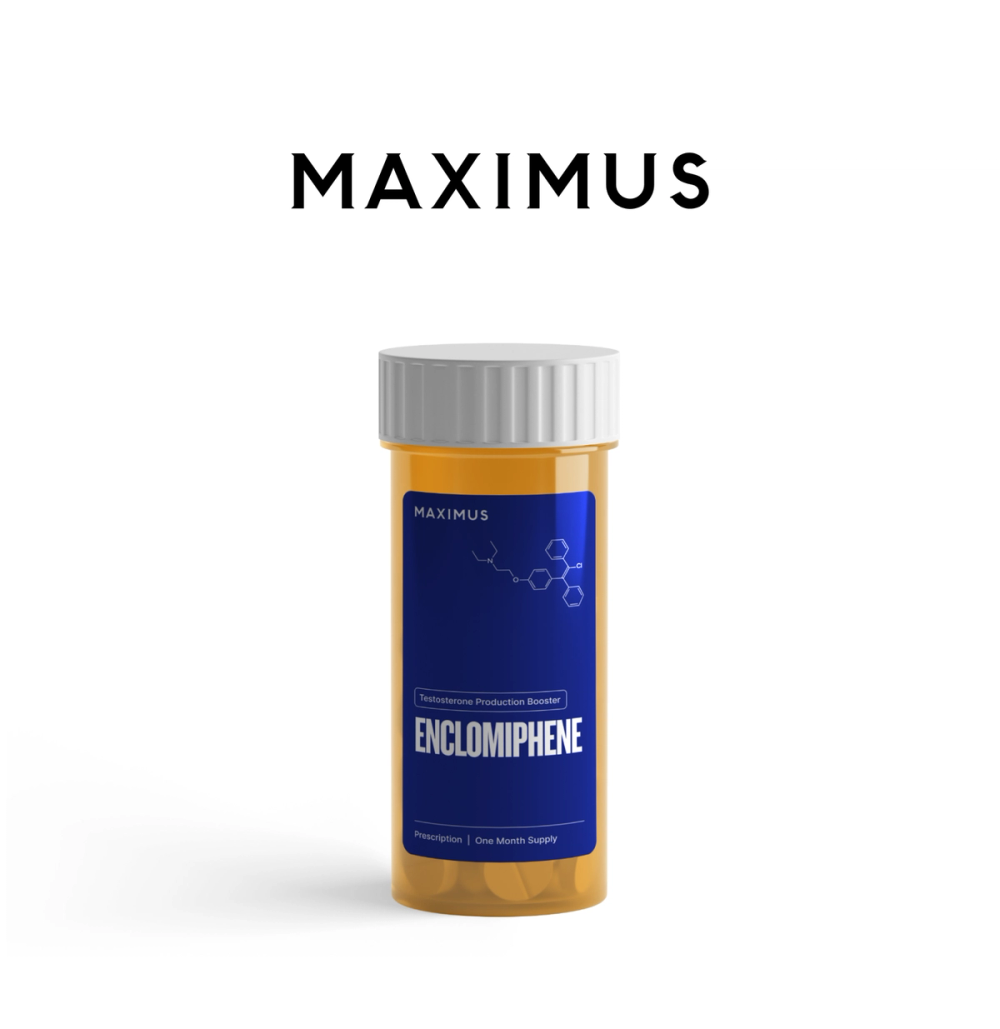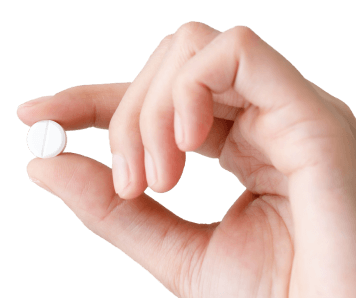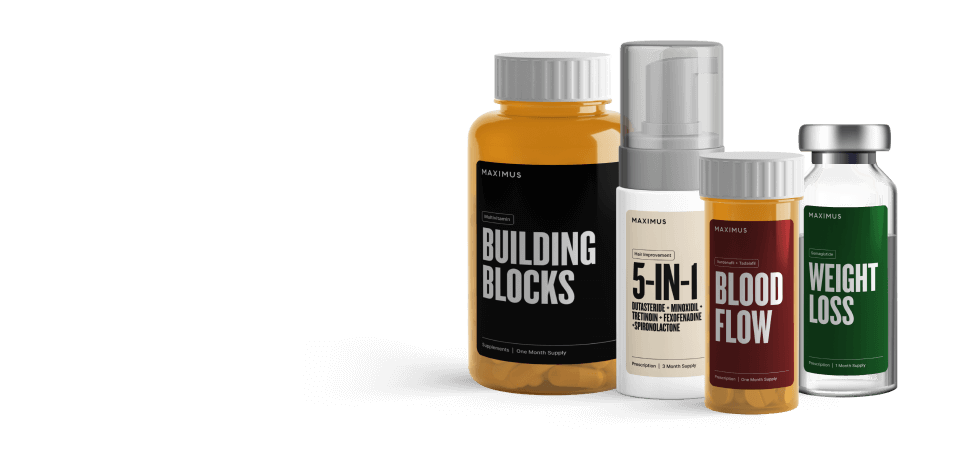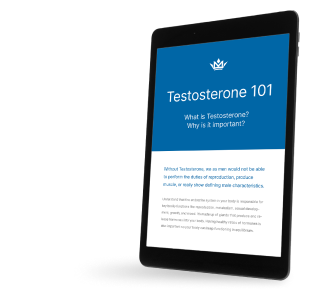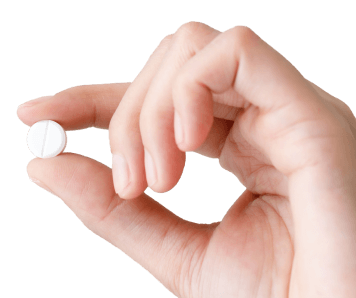Ah, the changes we see in ourselves as the years go by. It's all part of life's journey. Many of us have heard that as men age, their testosterone levels might take a dip. For most men, it seems to slowly wane with age starting around age 30 or 40.
Some research shows that it’s not just the march of time that nukes testosterone, but also some lifestyle choices like weight, poor diet, and not getting enough sleep.
Hitting the gym may help boost testosterone production, but so will eating the right things. There's not a magical testosterone-boosting unicorn food out there, but your diet can help you get all the important nutrients your body relies on to maintain healthy testosterone production and whole-body health.
Testosterone all-star foods
As you're mapping out your meals or your grocery list, you’ll want to keep two important words in mind: macronutrients and micronutrients.
Macronutrients are the big players we often hear about: proteins essential for muscle and repair, healthy fats that provide vital energy and facilitate testosterone production, and complex carbs that offer sustained fuel. Micronutrients fill in the gaps, offering all the essential vitamins and minerals our bodies need.
When we talk about testosterone-friendly foods, the value of embracing a balanced diet that’s abundant in whole foods cannot be overstated.
Variety is king. Splashing a spectrum of colors on your plate isn't only for Instagram and TikTok aesthetics; it's about giving your body what it needs. Think dark, leafy greens, juicy pomegranates and strawberries, and eggs.
Keep in mind that diet has a big impact on steroid hormone levels — including testosterone. Research shows that testosterone levels are higher when a diet contains around 40% fat compared to a diet with around 20% fat. Additionally, increasing protein intake at the expense of carbohydrates leads to a decrease in T levels. This suggests that the overall energy we get from various macronutrients can impact T concentrations in the body.
However, an interesting observation was made in that same study when male endurance athletes transitioned from a meat-centric diet to a lacto-ovo vegetarian diet: even though the energy derived from proteins, carbohydrates, and fats remained consistent across both diets, there was a decline in resting T levels and a reduced T increase after exercise. This implies that it’s not just the energy amount but also the specific composition of these macronutrients that can alter T concentrations.
Heading to the store? Here are some testosterone-friendly foods to add to your grocery list:
- Grass-fed beef
- Liver
- Dark, leafy greens
- Eggs (with the yolk)
- Avocado
- Poultry (chicken, turkey, you name it.)
- Salmon, tuna, and other fatty fish
- Oysters
- Pomegranates
- Berries
- Beans
- Ginger
- Brazil nuts
- Cacao (who doesn't love chocolate?)
Let's not forget water, either, which is absolutely crucial to staying in good health. Not only that, it’s also key for testosterone. Studies show dehydration is linked to low testosterone levels, even when you are doing an activity that’s meant to increase your testosterone.
Foods with potential testosterone downsides
Now that you know what foods are good for testosterone, it’s also important to understand that there are specific foods linked to a decline in testosterone levels, which can lead to symptoms like low sex drive, fatigue, and weight gain.
Here’s an overview of some foods that may negatively impact testosterone:
Sugar: It's the wolf in sheep's clothing. Research has shown that sugar-sweetened beverages can significantly lower serum testosterone levels in men aged 20-39. Meanwhile, another study found that glucose can cause a sharp drop in both total and free testosterone levels.
Some research shows that baked goods and pastries don’t have the greatest impact on testosterone, either. Results from a 2018 study published in the journal Nutrients found that a diet high in bread, pastries, and desserts (as well as things like dairy and dining out) was linked to lower total testosterone levels.
Dairy: That innocent-looking glass of milk? You may want to think twice before making a regular habit of drinking it. High in estrogen and progesterone, cow’s milk has been shown to mess with your hormone balance, decreasing luteinizing hormone (LH), follicle stimulating hormone (FSH), and testosterone in just a couple of hours. Along with testosterone, LH and FSH are hormones that are integral to the male reproductive system and actually stimulate testosterone production, testicular growth, and sperm maturation.
Mint: That refreshing spearmint gum might be pulling a fast one on you. Spearmint has been touted for its anti-androgen properties, especially for women with elevated androgen levels who are dealing with symptoms like excess hair around the mouth and chin. A lot more research is necessary to determine the full effect of mint on T-levels — especially more studies involving men. But based on existing findings, you may want to reconsider your gum flavor of choice.
Trans fats: They're the hidden tripwires in your food journey. Sometimes found in highly processed treats like cakes and donuts, trans fats have been shown to lower testosterone levels, along with impacting sperm count and testicular function. They also increase bad cholesterol and are associated with a higher risk of diabetes, among other negative health effects. Fortunately, the FDA banned US companies from adding trans fats (in the form of partially hydrogenated oil) to foods, but some items may still contain small amounts.
Alcohol: Many people don’t necessarily think of alcohol as a food — but there’s a good chance it’s part of your diet so we’re not about to leave this one out. Results from some studies show that heavy drinking is linked to reduced testosterone levels and may also harm some testicular cells that are responsible for sperm production.
Licorice root: This isn't your candy store licorice. Found in teas and supplements, licorice root comes in many forms and has antioxidant and anti-inflammatory properties. The problem is, it has also been linked to a decrease in testosterone. More research is needed, but this is one to keep your eye on.
Flaxseed: Sure, flaxseed has numerous health benefits, from lowering cholesterol to potentially reducing your risk for cancer. But there’s some other important information you need to know as far as testosterone is concerned. Flaxseed is high in plant compounds called lignans that bind to testosterone and force it to be excreted from your body, research shows. Additionally, in a small study on men with prostate cancer, flaxseed supplements reduced testosterone levels.
Digesting the data
While a good night’s sleep, regular exercise, and maintaining a healthy weight are all key to maintaining high testosterone levels, your diet plays a big role too. Focus on eating whole foods like avocado, berries, egg yolks, grass-fed beef, and leafy greens, and avoid getting lured into eating excessive amounts of sugary foods or dairy products.
Importantly, remember that the most effective diet is the one that you’ll stick to. If your favorite food made the “testosterone downsides” list, don’t stress it. The key is to aim for moderation and variety, not perfection.
Disclaimer: The contents of this article, including, but not limited to, text, graphics, images, and other information, is for information purposes only and does not constitute medical advice. The information contained herein is not a substitute for and should never be relied upon for professional medical advice. The content is not meant to be complete or exhaustive or to be applicable to any specific individual's medical condition. You should consult a licensed healthcare professional before starting any health protocol and seek the advice of your physician or other medical professional if you have questions or concerns about a medical condition. Always talk to your doctor about the risks and benefits of any treatment. Never disregard or delay seeking professional medical advice or treatment because of something you have read on this site. Maximus does not recommend, endorse, or make any representation about the efficacy, appropriateness, or suitability of any specific test, products, procedures, treatments, services, opinions, healthcare providers or other information contained herein. Maximus is not responsible for, nor will they bear any liability for, the content provided herein or any actions or outcomes resulting from or related to its use.
